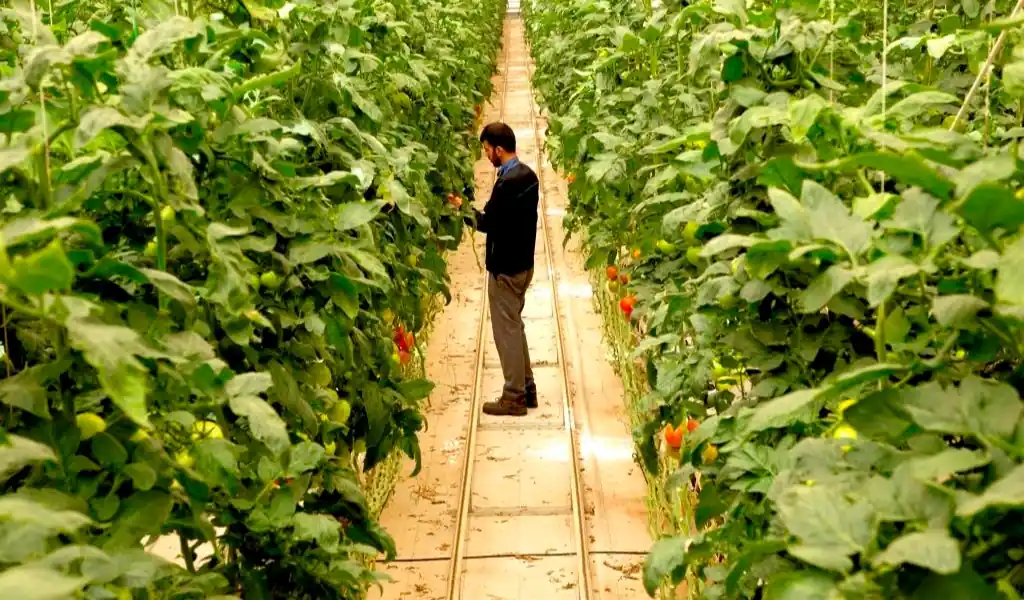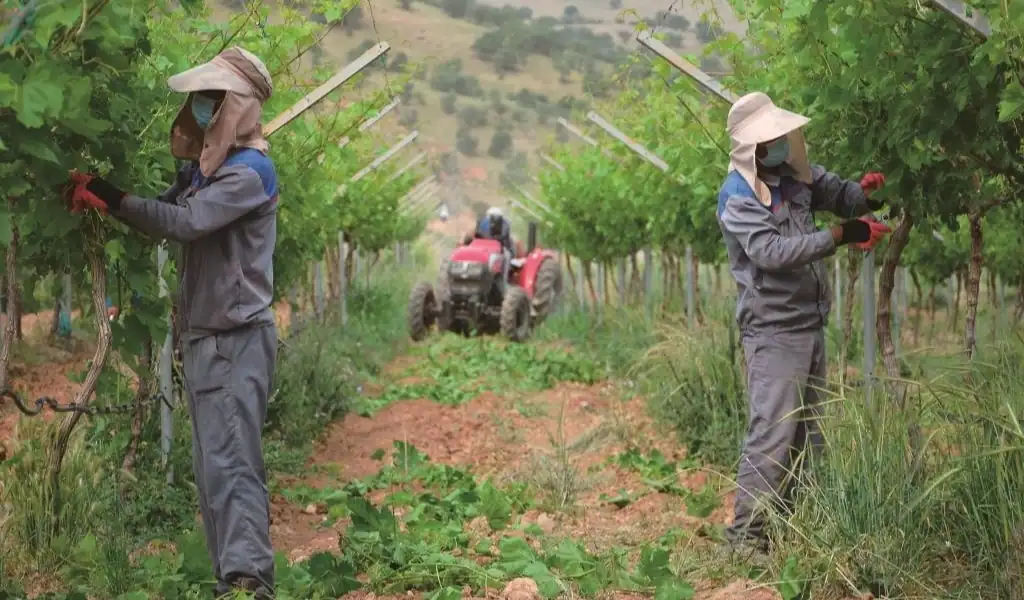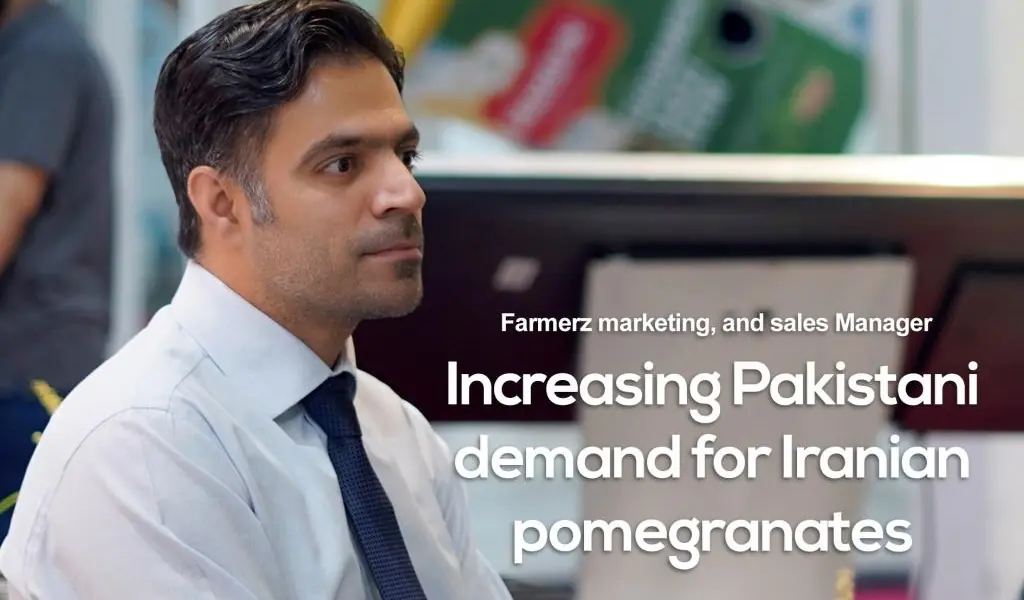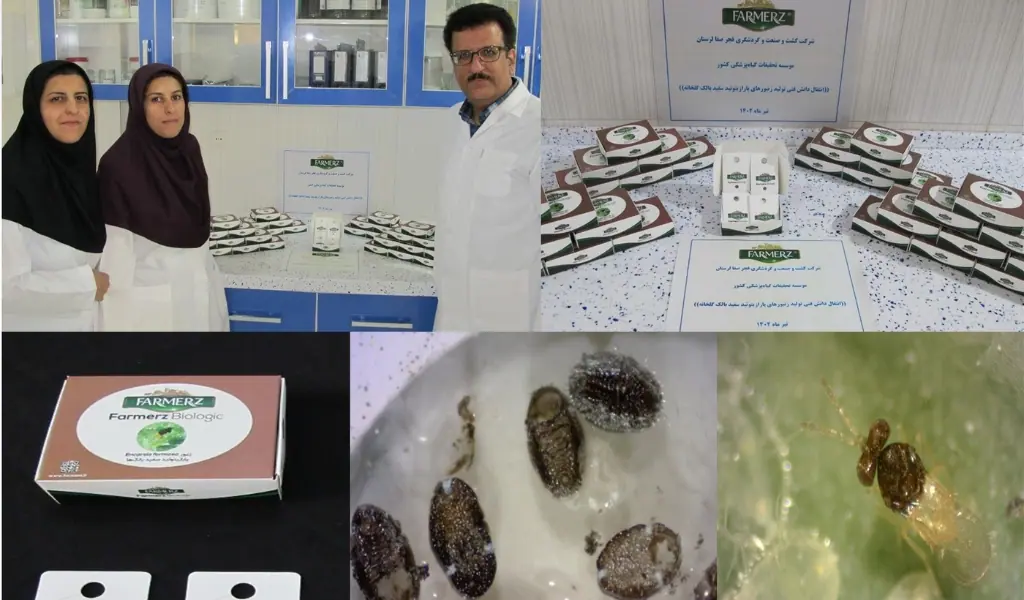Morteza Khanouki, Sales and Marketing Manager Farmerz:
Economic sanctions, the main barrier to Iranian fruit exports
Fifteen million hectares of arable land, a diverse four-season climate abundant sunlight, low energy costs… Iran has all the assets to be a major fruit-exporting nation. But the export fruit industry in Iran, along with its wider international trade, is being seriously slowed down by the economic sanctions imposed on the country. To understand how the sanctions are affecting Iranian fruit exports and how exporters are coping we interviewed Morteza Khanouki, Sales and Marketing Manager at Farmerz.
Farmerz is one of Iran’s leading fresh produce exporters. The company produce fruit in open fields as well as vegetables in hydroponic greenhouses. As one of the few agribusiness companies that exports up to 70% of its production and operates on more than 2,000 hectares of lands, Farmerz is an exception in Iran.
Morteza states: “The sanctions imposed on Iran are different in nature and scope. The unilateral sanctions imposed by the united states did not have a significant negative impact on the Iranian economy. However, since 2006, the more comprehensive multilateral sanctions imposed by the United States, the European Union, and the United Nations have had an inhibiting and paralyzing effect on our trade. We have been forced to shift our markets and trading partners from the EU to the MENA region and East Asia. Twenty years ago, European markets accounted for 40% of our exports, but this figure fell to about 19% in 2020. Currently, about 50% of our exports go to Iraq and Afghanistan.” As a result, Iranian exporters are confined to limited market.
“Neighboring Iraq is the largest market for Iranian fruit. We have also increased our exports to other neighboring countries, such as the United Arab Emirates, Russia, India, Afghanistan, and Pakistan.” Iranian exporters may have been able to reach alternative markets, but the flows and volumes exported are nowhere near the country’s potential. And the situation appears to be at a standstill. “Only a change in the Iranian government’s political behavior, and negotiations with world powers, can eliminate the negative impact of sanctions on trade,” says Morteza.


Of all the sanctions touts in place, trans exclusion from the SWIFT system is the most impactful. Morteza shares: Money transfer is our biggest problem, resulting in untraceable transactions, higher costs, and risk for Iranian exporters. As a result, our export statistics are neither traceable or official for example, we know for sure that Russia is an important market for Iranian capsicum, but we cannot know the real value and quantity of exports. Iranian exports are therefore routed through third countries using financial schemes that are, albeit legal very costly for exporters.
This configuration puts Iranian exporters in a weak negotiating position, and it has to be said that their buyers take advantage of this situation, forcing them to accept lower prices, shrinking year after year, despite global inflation. Morteza adds. “Surprisingly, the prices of Iranian fruits have decreased from 2010 to 2018. The Iranian currency has also depreciated against the US dollar, partly due to sanctions. As a result, producers have started to export more in order to cope with rising local prices. On the world stage, this fall in Iranian fresh produce prices is linked to Iran’s economic difficulties. All these factors together determine the price of Iranian fruit today.
As a result, Iran’s fruit exports have increased from 3 million tons in 2018 to 4.5 million tons in 2021. In terms of value, this represents an increase from $2.4 billion in 2010 to $3.1 billion in 2021, according to figures provided by Farmerz. The most exported fruits are pistachios, dates, apples, grapes, watermelon, kiwi, ranges, and stone fruits.
These export volumes are far below the country’s huge potential, with a total fruit production that reached 18 million Inns in 2021. Morteza comments, “We have favorable conditions for fruit cultivation, with an extended growing season and abundant sunshine, which enables us to produce a wide variety of fruits. Our growers are renowned for their unique Varieties and high-quality products, with considerable international demand that is only being hampered by the current political situation”
“For example, the International Trade Center estimates that Iran exports only 44% of its export potential for apples, 53% for watermelons, 57% for grapes, and 40% for kiwis. There are indeed other factors at play, such as international competition and increasingly adverse climatic conditions. But these factors are common to all countries, and we also have our strengths. The biggest obstacle to realizing our potential remains the political situation and economic sanctions.
The lifting of sanctions is vital to unlocking this potential. Morteza is optimistic: “We hope the situation will improve soon. The reconciliation between Iran and Saudi Arabia is an important step in the right direction and means the reopening of an important market for us. We also hope that our country will achieve lasting peace with Europe and the United States”
Neighboring Saudi Arabia imports hundreds of thousands of tons of fruit annually, valued at $1.70 billion. Before diplomatic relations between the two countries were severed 7 years ago, the fruit trade was thriving with dozens of containers being shipped every day. The fruit industry professionals from both countries are looking forward to the awaited resumption of trade following the reconciliation between the two countries.
“Meanwhile, in the short term, we’re looking forward to strengthening our position in existing export markets especially in neighboring countries such as Iraq, Russia, Afghanistan, India, the UAE and Kazakhstan, adds the exporter
Until normal operations can be restored. Morteza says he is used to playing in a difficult configuration. He concludes, “Despite all the challenges, we have been able to maintain a viable fruit industry with competitive prices, supported by technology driven farming methods such as precision agriculture. We are in constant contact with current and potential customers around the world. Our company is an outstanding success story in Iran.




